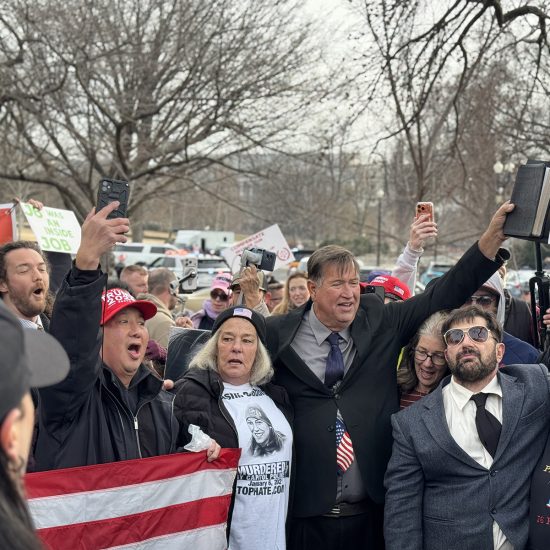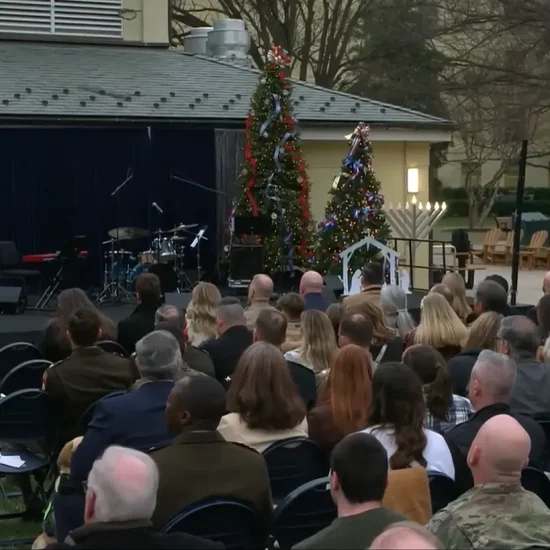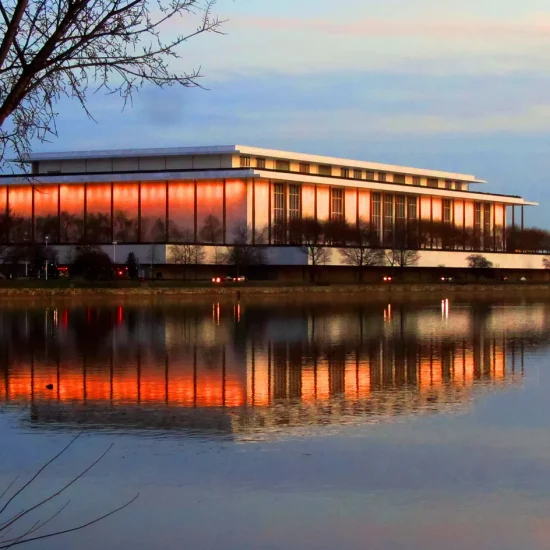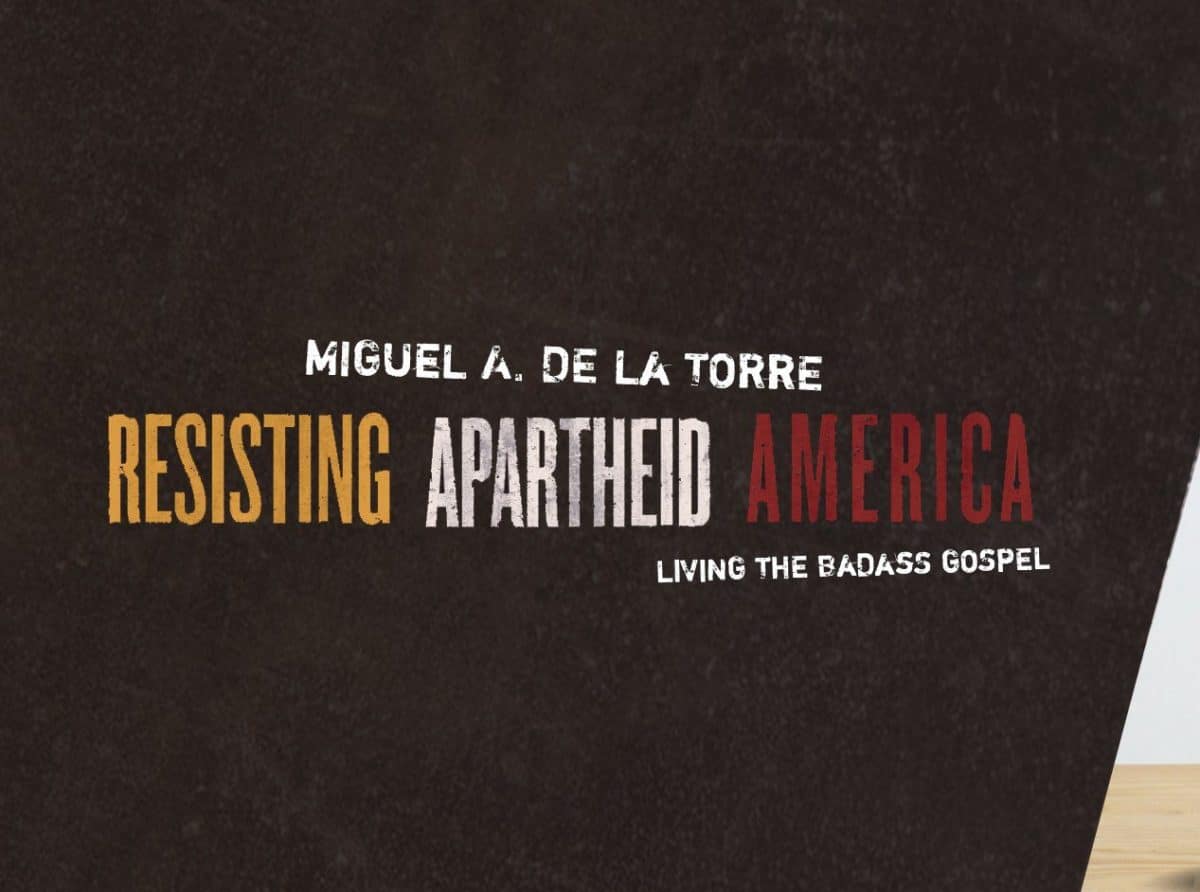
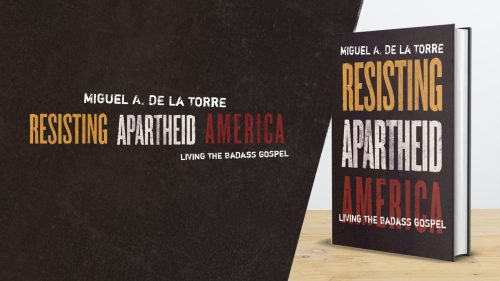
RESISTING APARTHEID AMERICA: Living the Badass Gospel. By Miguel A. De La Torre. Grand Rapids, MI: Wm. B. Eerdmans Publishing Company, 2023. Viii + 278 pages.
Sometimes we face inconvenient truths. We may wish what we’re witnessing is not true, yet if we open our eyes, we see the evidence staring us in the face. Could it be that a form of apartheid is taking hold in America (more specifically the United States of America)? Could it be that a form of EuroChristianity (aka White Christian Nationalism) stands at the center of this emerging apartheid reality? Could it be that this ideology threatens democracy in the name of protecting power for some and not for others? We may call it Trumpism, but Donald Trump isn’t the cause. He’s simply the face put on an ideology that has been around for a long time. While this ideology has a long history, adherents are making a play for power at this moment. What is the evidence? Consider all the bans on CRT and DEI being brokered in our legislatures. Why is this happening? It appears that some people feel threatened by the increasing diversity in the United States, together with the reality that racism, sexism, and other “isms” are systemic in nature. So, what should we do? How should followers of Jesus respond?

Robert D. Cornwall
Miguel De La Torre has a few ideas about ways we might respond to the presence of apartheid ideology in our midst. It requires that we embrace what he calls Badass Christianity. He has been developing this idea of a “Badass Christianity” in a series of books, the third volume of which is under review here. De La Torre’s final contribution to a trilogy of books calling for us to embrace “Badass Christianity” is titled Resisting Apartheid America: Living the Badass Gospel. This volume follows the previous volume Decolonizing Christianity: Becoming Badass Believers, a volume that I have previously reviewed, though I will confess that I have not read the first book in the trilogy: Burying White Privilege: Resurrecting a Badass Christianity. That volume, which De La Torre directed at White Christian Nationalists apparently created something of a storm, which led to him writing a second book: Decolonizing Christianity: Becoming Badass Believers. While the first book, which I did not read, was directed at White readers, the second volume Decolonizing Christianity, is addressed to a different community and addresses the challenge of White Christian Nationalism. This third book, Resisting Apartheid America, takes us a step further toward a better future. However, De La Torre does not hold out much hope for the future. He knows what needs to be done, he just doesn’t think we can get there. Still, if there is to be any form of hope we’ll need to heed this call to resist Apartheid in America.
The author of this book, Miguel A. De La Torre, is a professor of social ethics and Latinx studies at Iliff School of Theology in Denver, Colorado. He has published over forty books, two of which I’ve mentioned above. Among his other books, which I’ve reviewed include Decolonizing Christianity; The U.S. Immigration Crisis: Toward an Ethics of Place (Cascade Companions); Liberation for Arm Chair Theologians; and The Quest for the Historical Satan.
The opening chapter of Resisting Apartheid America reveals the essential argument of the book. That essential argument is this, according to De La Torre: EuroChristianity is “America’s Greatest Threat.” That is a provocative claim, which requires a bit of definition. When he speaks of EuroChristianity he has in mind a form of Christianity defined by White Supremacy. It is a religion that proclaims a White male God and a White Jesus. It is a religion that is committed to making sure EuroAmericans (White folk) control every dimension of the United States of America. This means keeping everyone else in their place. Now, before my European American friends get overly uncomfortable with this claim, De La Torre does not mean that we (I include myself here) White people are evil. However, the ideology he calls EuroChristianity, which inhabits our context, needs to be exorcised if democracy is to survive in America.
As you might expect, De La Torre addresses the ideology of Trumpism along with the continuing presence of Trumpism in the Republican Party. De La Torre, who is by training and vocation a Christian social ethicist, seeks to offer us in this volume a prophetic witness concerning the situation at hand. While doing this he warns us as to what could happen and perhaps will happen, if we continue on this path. I will note that on the day this review is posted, Donald Trump is being arraigned on charges of tax fraud among other charges related to a hush-money payoff to an adult movie star with whom he allegedly had an affair. The attachment on the part of many conservative Christians to Donald Trump raises important questions as to the purpose of this movement that Trump embodies. Responding to such a movement requires a person of prophetic vision, and De La Torre takes up this mantle, at least indirectly. Whether he embodies the spirit of a prophet such as Amos or Jeremiah is for others to discern, but De La Torre reveals what he believes is an important word for Christians regarding salvation. He believes that salvation will occur only when/if we reject this apartheid-producing EuroChristianity. The question is whether we have the wherewithal to take up this work of resistance that is revealed in this book.
Regarding the word “apartheid,” which has its origins in South Africa, it is based on the Afrikaans word for “apartness.” As De La Torre notes in chapter 2 of the book, apartheid/apartness has been an ideological constant in American life from the beginning of the colonial presence on the continent. We see this reality in the form of American chattel slavery, the removal of indigenous Americans, Jim and Jane Crow/segregation, the Asian exclusion act, and more. All of these efforts/realities were designed to protect White dominance in the land we call America. This is the ideology that defines the movement to “Make America Great Again.” This is an ideology that seeks to return the United States of America to a time before the Civil Rights movement and the Voting Rights Act, just to name two acts of resistance to Apartheid America. For De La Torre, salvation will come when that version of Christianity dies. That is, it is crucified. It is something that we who are White must undertake by letting go of White privilege.
So how did this Apartheid Eurochristianity come into being? De La Torre explores that subject in chapter three. In that chapter De La Torre begins with Paul, noting that Paul’s mission to Europe led to the creation of a Christianity that took on European guise. We might debate this starting point, but over time we see the development of a faith defined by particular cultural values that are embedded in the works of people such as Justin and Augustine, as well as such modern figures as Stanley Hauerwas. Now, this should prove rather provocative. We might agree that a figure such as John Piper or Wayne Grudem are proponents of the kind of Christianity that De La Torre is critiquing, but how is Hauerwas a purveyor of such a theology? You’ll have to read the book to discover why he says this, but perhaps he uses Hauerwas as an example because De La Torre is speaking to White liberal Mainliners like me, who read Hauerwas but not Grudem. While you ponder the inclusion of Hauerwas in this critique, it’s helpful to step back and consider how racist ideologies have even infected theologies designed to liberate, including the Social Gospel. De La Torre reminds us that figures such as Walter Rauschenbusch were committed White Supremacists. White Supremacy is very much present in Rauschenbusch’s books, which may surprise many who lift up Social Gospel figures as liberal saints.
The chapter that stood out for me, is chapter four. The chapter is titled “Celebrating Ignorance.” In this chapter, he addresses the embrace of ignorance among many in the United States, whether comes in the form of anti-vaxxism or climate change denialism. Most importantly, De La Torre focuses on how White rage has been manipulated through conspiracy theories and anti-intellectualism. He addresses the political attacks on Critical Race Theory (CRT) and Diversity, Equity, and Inclusion (DEI), all of which are rooted in attempts to manipulate ignorance as to the meaning of these concepts to rouse the base against perceived threats from those perceived to be “the other.” We see this in conspiracy theories such as the “Great Replacement Theory.” This conspiracy theory suggests that Democrats/liberals are attempting to diversify America to replace White Christians as the majority force in American life. Of course, as he notes there is Trump’s Big Lie, designed to help EuroChristians (White Christian Nationalists) keep/take power.
Chapter five introduces a rather provocative call for the reader to embrace the idea of becoming “un-American.” By that De La Torre means rejecting the “America” that is represented by the Proud Boys and the Euro-Christian nationalists that invaded the capitol building on January 6, 2021, in the hope of overturning an election they didn’t like. While many of us would hope that this picture doesn’t define what we know as America, it is a picture embraced by many in this country, including many in our churches. He asks the question of whether toxic hypermasculine White Christianity could be a threat to the future of democracy in America. I want to push back on this idea and yet there is evidence that this is happening. Consider the attempts to suppress votes as an expression of such a vision. The question is this: What should we do? The answer offered by Miguel De La Torre is for us to embrace badass Christianity, and “to be badass is to reject White supremacy and to make marginalized stories central in the retelling of the American experience. To be un-American is to overturn the tables of apartheid, chasing those profiting from our oppression out” (p. 214). As you might imagine, reports from Virginia and Florida and Texas, and elsewhere, suggest that some wish to embrace a white-washed telling of history.
As you read Resisting Apartheid America, you’ll need to ask whether this is a prophetic text. De La Torre would prefer we not speak of him in such terms, as he envisions himself serving as a scholar, not a prognosticator. In his mind, to call him a prophet could delegitimize what he seeks to do as a scholar. Nevertheless, he takes on the role of “playing the prophet” (chapter 6). Taking on that role, he lays out the challenges that lie ahead of us. He makes it clear that “love” is not enough.” It will take resistance to the forces of EuroChristianity (White Christian Nationalism), a form of “Christianity” that has little to do with Jesus and his message. While violence might be attractive, he rejects that avenue. As for whether there is hope, he has his doubts. In fact, he describes himself as being hopeless. Nevertheless, change is possible. But it will require conversion on the part of those of us who benefit from White privilege. That’s where he lacks confidence in the future.
If you’re looking for a book that will give you a comforting vision of the future, you’ll be disappointed by Resisting Apartheid America. De La Torre isn’t interested in making White Christians like me feel comfortable. Nonetheless, De La Torre is not a “racist” anti-White activist. He makes it very clear throughout the book that the issue isn’t melanin but ideology. While we can’t change our melanin, we can change our ideologies. That is what De La Torre invites us to do if we’re open to living as Badass Christians. It’s a challenging book, but that’s the point. So, if you’re ready to have your eyes opened to a different vision of Christianity then Miguel De La Torre’s Resisting Apartheid America: Living the Badass Gospel will be a welcome guide.
This review originally appeared on BobCornwall.com.
Robert D. Cornwall is an ordained minister in the Christian Church (Disciples of Christ). Now retired from his ministry at Central Woodward Christian Church (Disciples of Christ) of Troy, Michigan, he serves as Minister-at-Large in Troy. He holds a Ph.D. in Historical Theology from Fuller Theological Seminary and is the author of numerous books including his latest “Second Thoughts about the Second Coming: Understanding the End Times, Our Future, and Christian Hope” coauthored with Ronald J. Allen. His blog Ponderings on a Faith Journey can be found at www.bobcornwall.com.

